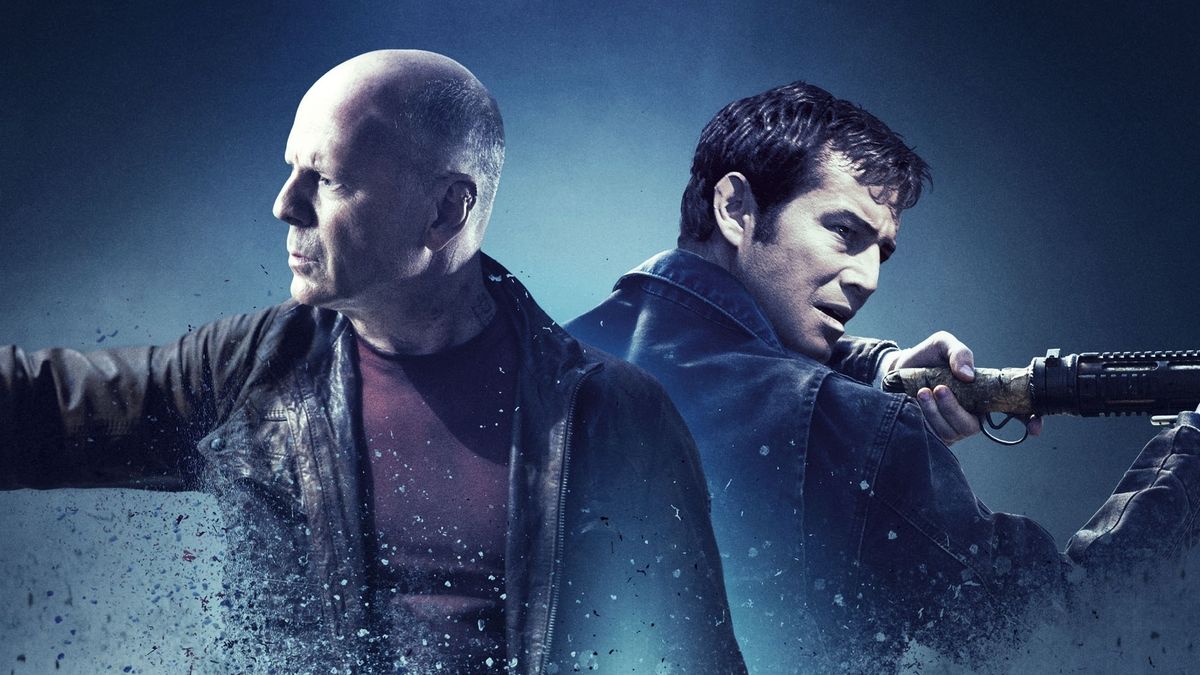
Science fiction and thriller films have something in common – they look to amaze the audience not only with their monumental settings, but with their stimulating storytelling as well. In this regard, this list will provide some films that connect both genres through the use of symbolic and always relevant ideas. Science fiction has, in its structure, an alarming sight of how the future of mankind will be, and thriller fiction has the vigorous pace of that foresight.
The contents of these movies deal with issues such as time travel, political catastrophe, desensitization of experiences, video games, reality, simulation, and dystopian societies. Spoilers ahead.
1. Looper (2012)

Before making “The Last Jedi,” Rian Johnson created some really great films, such as “Brick,” a noirish high school thriller, and “Looper.” Influenced by different sources such as “Blade Runner,” “Children of Men” and even the classic animé film “Akira,” “Looper” stands out as one of the finest thrilling science fiction films of recent years.
In 2074, killing is forbidden because track a dead body is very easy. To address this problem, crime organizations send the victims back to 2044 to “Loopers” so that they take care of this issue. Joe (Joseph Gordon-Levitt) is a Looper – that is to say, a paid assassin – who dismisses the victim’s dead body in a very efficient way. One day, Joe’s older self appears (Bruce Willis) and everything gets twisted.
Maybe it’s in its thoughtful naturalistic approach to time travel, or perhaps in its minimalistic yet enveloping narrative, but the truth is that once the movie begins, it’s impossible to not get dominated by its pace.
2. Children of Men (2006)
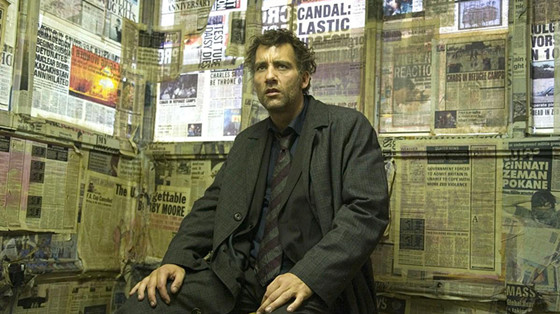
Alfonso Cuarón’s masterpiece is arguably the greatest science fiction film of the first decade of the 21st century. Part of its worth relies on its prophetic vision of the forthcoming conditions that will determine mankind’s position into the geopolitical scenario of the future.
In 2027, humanity is on the verge of extinction because both men and women are unable to have children. The U.K. seems to be the only country in the world that provides the minimum conditions for order and security. Suddenly, the youngest human being alive dies in Buenos Aires, Argentina and chaos becomes imminent.
In this regard, the film follows Theo Faron (Clive Owen), a former immigrant who has forgotten his past as an asylum seeker and is now a government bureaucrat. Theo’s ex wife Julian Taylor (Julianne Moore), who is part of “The Fishes” (a terrorist organization against inhumane treatment of immigrants), kidnaps and hires him in order to get some travel authorization for a young African refugee girl. She could be mankind’s salvation.
Even though Cuarón claims that the film itself is not prophetic and it’s just “a diagnosis of the state of things at the time,” and that the thematic element “has to do with humanity’s drive to move forward,” it’s impossible to not feel that the world the film portrays may be the inexorable destiny of the human race.
3. Strange Days (1995)
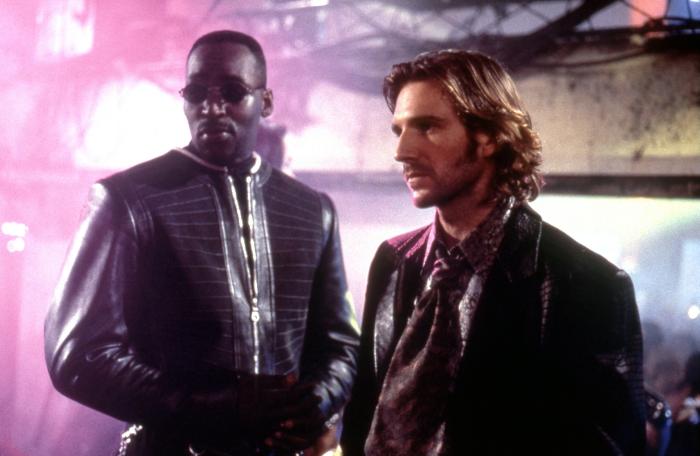
Kathryn Bigelow’s “Strange Days” is a film that is not always in minds of people when they think about great science fiction movies. In this regard, the element that stands out, and which perhaps forms the film’s most remarkable aspect, are the SQUID recordings.
In the final days of 1999, Los Angeles has become a hazardous territory. An electronic device called SQUID records incidents and then, through the use of a MiniDisc-like instrument, permits other people to relive the original experiences. Lenny Nero (Ralph Fiennes) is a former police officer now turned into a black marketeer of SQUID recordings. Lenny cannot forget his ex-girlfriend Faith (Juliette Lewis), so he uses the SQUID recordings to repeat his past experiences with her. One day, he receives recordings of a serial killer who could potentially damage Faith.
Although Bigelow states that the SQUID recordings are used as a tool to talk about cinema itself, it’s the voyeuristic lecture hat exploits the full potential of this device. “Part of why cinema is so attractive is what Roland Barthes said about it being a tear in the fabric of society, a window into another universe. The desire to see and watch is part of the human condition. I guess it’s called scopophilia—to fetishize watching.”
4. eXistenZ (1999)
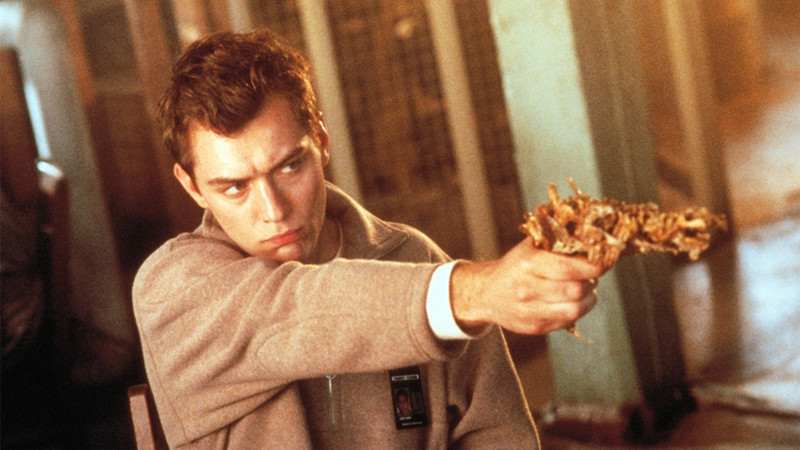
Video games have not been portrayed in films in an approach that’s more geared towards adults. Although movies like Robert Rodriguez’s “Spy Kids” may prove to be really fun, the lack of existential and mature treatment to video games, as a cultural production, has often been neglected. It was necessary that a master of cinema such as David Cronenberg get interested in the medium for a proper adult film about videogames and its impact over society.
The film is set in the near future where “game pods,” a biotechnological virtual reality video game, dominate the world. Two corporations battle against each other for the control of the market. Simultaneously, the “realists” fight against both companies to prevent reality from being distorted.
In this exquisite tale that questions the boundaries between reality and fantasy, all the common tropes of Cronenberg’s career are displayed in a masterful way. The restless combination between the human body and machines are presented in the classic eerie shape that has characterized the aesthetic disposition of the Canadian filmmaker. A shallow interpretation would say that everything in “eXistenZ” is unwarranted, but a deep interpretation would understand that what Cronenberg is looking for is the most intimate impulse of human identity.
5. Dark City (1998)
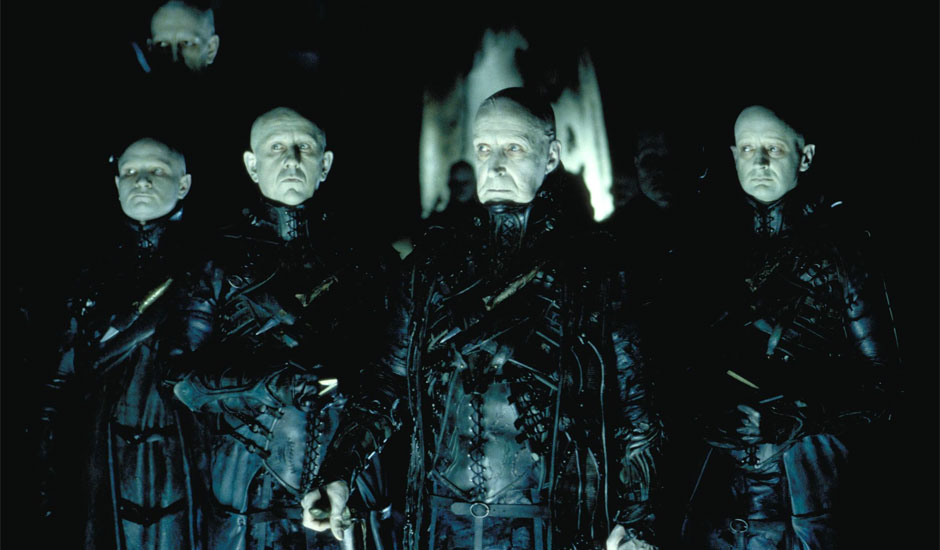
Alex Proyas’ unjustly forgotten “Dark City” is one hell of a ride. Its somber setting reminds at times of the grotesque characters of Clive Barker’s “Hellraiser” and, at other times, the intense ambience oppression of Lovecraft’s best short stories.
John Murdoch (Rufus Sewell) wakes up in a hotel and he cannot remember anything. Daniel Schreber (Kiefer Sutherland) tells him that a secret organization is after him. This organization is known as “The Strangers.” They blame him for some atrocious and sadistic murders. Ultimately, Murdoch learns that he has a wife, Emma (Jennifer Connelly), and that a police inspector is after him, Frank Bumstead (William Hurt), as well. While “The Strangers” are still looking for him, Murdoch finds out that he’s confined in a secret underground reality below earth that may be linked to this enigmatic group.
The omnipresent darkness presents itself as another character of the cast, emphasizing “The Strangers’” occult intention with human’s soul. Without “Dark City” neither “Requiem for a Dream” or “The Matrix” would exist and, although it is not a perfect film, it’s a very interesting work of science fiction as a genre.
6. Alphaville (1965)
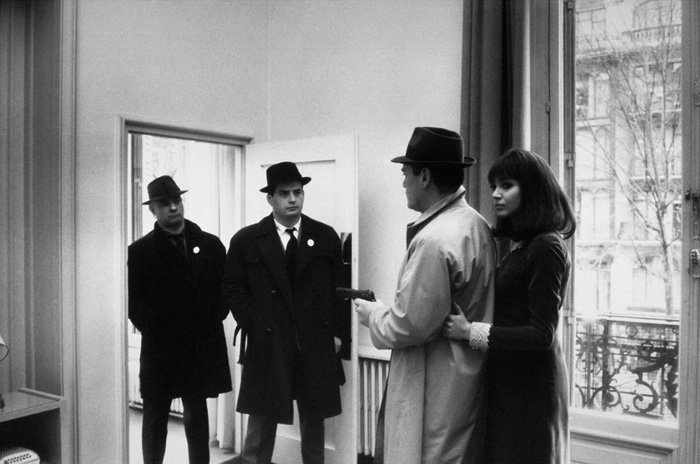
Jean-Luc Godard is the most well-known figure of the French New Wave. One of the qualities that has always been highlighted in his work is his bold approach to experimentation in filmmaking. In “Alphaville,” Godard displays a science fiction film without special effects, trusting only in the strength of the characters and in the irresistible and riveting poetry arranged throughout the movie.
American secret agent Lemmy Caution (Eddie Constantine) is sent to Alphaville, a futuristic city located on another planet. He must arrest Professor Leonard Nosferatu, aka von Braun (Howard Vernon) and find his predecessor Henri Dickson (Akim Tamiroff). Von Braun controls Alphaville’s people through the use of a machine called Alpha 60. Disguised as Yvan Johnson, a reporter for the Figaro-Pravda, Caution executes the quest but gets involved with von Braun’s daughter Natacha (Anna Karina).
This mysterious tale of logic against poetry (after all, some lines are taken from the great Argentine writer Jorge Luis Borges) makes “Alphaville” an electrifying yet fun filmic experience to have.
7. Gattaca (1997)
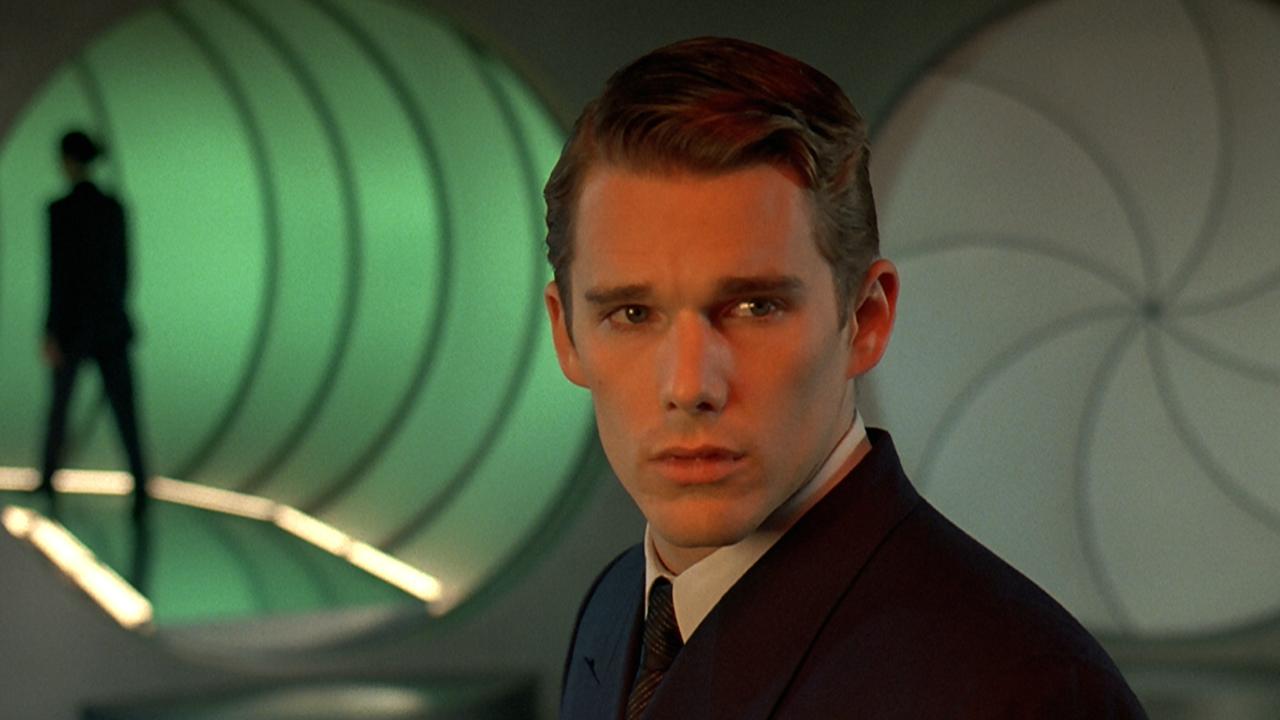
Eugenics is a philosophical and medical concept that encourages selective breeding; in other words, the promotion of higher desired genetic traits over less desired genetic traits. Andrew Niccol’s “Gattaca” explores this idea with a taste for visual delicacy that stimulates existencial and ethical questioning.
In the future, eugenics is a trivial practice. Vincent (Ethan Hawke) was one of the last humans conceived naturally. He suffers a heart condition that will allow him to live only until his early 30s. His brother Anton (Loren Dean) was conceived by genetic selection and is really healthful. Vincent has always dreamed of go into space. To fulfill this goal, Vincent replaces Jerome (Jude Law), a former swimmer who’s now a paralytic, and gets hired at Gattaca Aerospace Corporation where an upcoming trip to Saturn’s moon Titan is waiting for him.
The perpetual quest for perfection raises “Gattaca” as one of the few science fiction films that actually deals with ideas. Although it’s speculative, it’s also realistic in his questionings about the future of humankind. A fine piece of cinema that dances in a quiet thrilling rhythm.